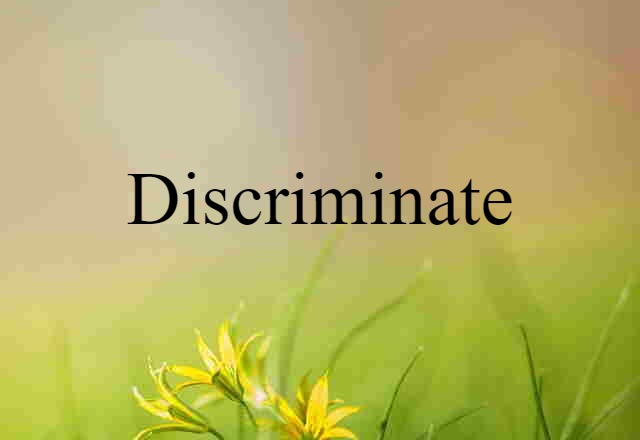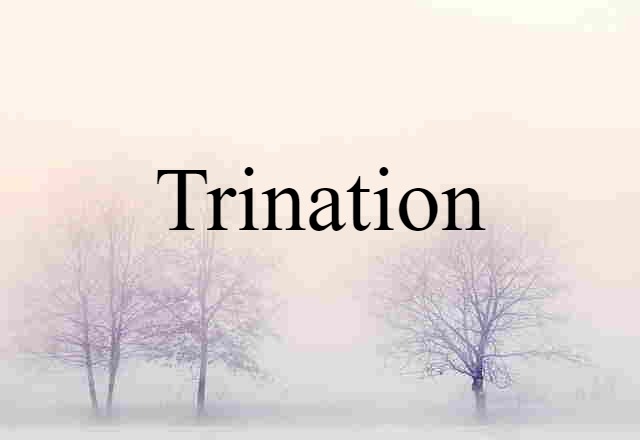- to make a distinction in favor of or against a person or thing on the basis of the group, class, or category to which the person or thing belongs rather than according to actual merit; show partiality: The new law discriminates against foreigners. He discriminates in favor of his relatives.
- to note or observe a difference; distinguish accurately: to discriminate between things.
- to make or constitute a distinction in or between; differentiate: a mark that discriminates the original from the copy.
- to note or distinguish as different: He can discriminate minute variations in tone.
- marked by discrimination; making or evidencing nice distinctions: discriminate people; discriminate judgments.
- to single out a particular person, group, etc, for special favour or, esp, disfavour, often because of a characteristic such as race, colour, sex, intelligence, etc
- to recognize or understand the difference (between); distinguish
- to constitute or mark a difference
- to be discerning in matters of taste
- showing or marked by discrimination

More Definitions
- HEAVY-HANDED (noun) Definition, Meaning & Examples
- MEGASPORANGIUM (noun) Definition, Meaning & Examples
- ELECTRONIC BRAIN (noun) Definition, Meaning & Examples
- AA (noun) Definition, Meaning & Examples
- LONG-TERM MEMORY (noun) Definition, Meaning & Examples
- BEMIDJI (noun) Definition, Meaning & Examples















